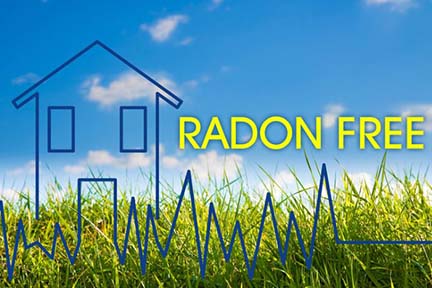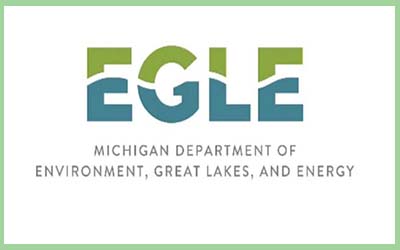
This winter, make your home a healthy nest
|
|
|
|

|
|
|
|

|
|

Press Release FOR IMMEDIATE RELEASE: Jan. 4, 2023 CONTACT: Chelsea Wuth, 517-241-2112, [email protected] MDHHS recognizes first Social Determinants of Health Month in January Statewide summit to take place Jan. 24-26 LANSING, Mich. – The Michigan Department of Health and Human Services (MDHHS) is bringing partners together across the state in recognition of Social Determinants of Health (SDOH) month in January. MDHHS will host events throughout the month to highlight statewide efforts and offer a virtual SDOH Summit Jan. 24-26. Phase II of the MDHHS Social Determinants of Health Strategy, Michigan’s Roadmap to Healthy Communities, will also be released. Throughout the month, local, state and federal partners will highlight their efforts to address social factors that impact health. The goal of the month is to improve awareness of current resources for residents, highlight successful community driven solutions and develop stronger partnerships to support a greater impact in community. “Inequities in health outcomes in Michigan have been exacerbated by the pandemic,” said MDHHS Director Elizabeth Hertel. “These inequities arise from complex, integrated and overlapping social structures, economic systems and policies, rather than individual risk factors. MDHHS is excited to release Phase II of the MDHHS Social Determinants of Health Strategy, Michigan’s Roadmap to Healthy Communities during SDOH month, which focuses on the importance of multisector partnerships and other holistic strategies to improve health outcomes in Michigan.” Disparities in SDOH unfairly disadvantage individuals and contribute to persistent and preventable health inequities. MDHHS promotes the health, safety and stability of residents by providing services and administering programs and policies that positively improve the social determinants of health. “When it comes to health, many people in Michigan face significant barriers. These barriers, including limited access to healthy food, unsafe housing or lack of transportation which can impact a person’s ability to make healthy decisions and affect how healthy they are,” said MDHHS policy and planning director Ninah Sasy. “Through the SDOH Strategy, we are addressing these inequities by ensuring that we have diverse voices at the table as we improve our programs and policies.” If interested in attending, register for the summit and share efforts from your community. Are there local efforts to address SDOH happening in your community? Please share and email MDHHS at MDHHS-SDOH-PolicyandPlanning@ To stay updated on SDOH efforts in Michigan and learn more about how you can participate in SDOH month, sign up for the SDOH newsletter or visit Michigan.gov/SDOH. |


FOR IMMEDIATE RELEASE January 3, 2023 Contact: [email protected] Gov. Whitmer to Deliver 2023 State of the State Address on January 25th LANSING, Mich – Governor Gretchen Whitmer will deliver her fifth State of the State Address on Wednesday, January 25th. The address will be held in the Michigan House Chambers in front of a joint session of the Michigan House of Representatives and the Michigan Senate and broadcast live throughout the state.
“The State of the State address is an opportunity to talk about the issues that make a real difference in people’s lives and focus on what we’re going to get done this year,” said Governor Whitmer. “I can’t wait to share my vision for our state as we move towards our bright future, and lay out my plans to lower costs, bring supply chains and manufacturing home to Michigan, and ensure Michiganders have unparalleled economic opportunity and personal freedom.”
During her 2023 State of the State address, Governor Whitmer will lay out her plans to tackle the challenges Michiganders are facing right now. Her proposals will lower costs, make Michigan more competitive, expand opportunity, and protect people’s fundamental rights. Together, they represent the future and will move Michigan forward.
HOW TO WATCH THE 2023 STATE OF THE STATE ADDRESS
|

Press Release FOR IMMEDIATE RELEASE: Jan. 3, 2023 CONTACT: Lynn Sutfin, 517-241-2112, SutfinL1@ MDHHS offers tips during National Birth Defects Prevention Month LANSING, Mich. – Nearly 13,000 children in Michigan are diagnosed annually with a birth defect within one year of birth. The Michigan Department of Health and Human Services (MDHHS) is joining with leading prenatal health experts from the National Birth Defects Prevention Network this month to increase awareness of five critical tips that help reduce the chances of having a baby with a birth defect. Birth defects are structural changes that can affect almost any part of the body, such as the heart, brain or foot, and can cause lifelong health challenges. Annually, the National Birth Defects Prevention Network raises awareness of birth defects and promotes strategies that help reduce the risk of birth defects and their complications. The National Birth Defects Prevention Month campaign theme this year is “Healthy Communities, Healthy Babies.” “As medical care and treatment have improved, babies and children with birth defects are living longer and healthier lives,” said Dr. Natasha Bagdasarian, chief medical executive. “Although not all birth defects can be prevented, pregnant people and prospective parents are encouraged to make healthy choices and adopt healthier habits to help lower their risk of having a baby born with a birth defect.” Follow these five tips to increase your chances of having a healthy baby:
The MDHHS Birth Defects Education and Outreach program encourages Michiganders to be active participants in National Birth Defects Prevention Month by sharing these tips for healthy communities and healthy babies. For more information, visit National Birth Defects Awareness Month – National Birth Defects Prevention Network (nbdpn.org). |